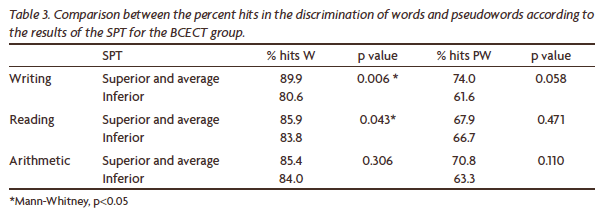In the active phase of benign childhood epilepsy with centro-temporal spikes (BCECTS) there may be a fall in scholastic performance. OBJECTIVE: To study lexical decision in children with BCECTS. METHOD: 42 children with BCECTS were compared with a control group with respect to their hits and response time in a visual discrimination of words and pseudowords task (DWPT). RESULTS: The children with BCECTS had a lower percentage of hits for words and pseudowords and showed longer response times for pseudowords. They also frequently showed inferior reading and writing performance in the school performance test. The percentage of hits for pseudowords was lower when there was bilateral, asynchronous epileptiform activity. CONCLUSIONS: The DWPT provided contributions for reading assessments in children with BCECTS. The results indicated the need for attention in detecting reading difficulties in children with BCECTS.
benign childhood epilepsy with centrotemporal spikes; rolandic epilepsy; EEG; epileptiform activity; reading; cognition





